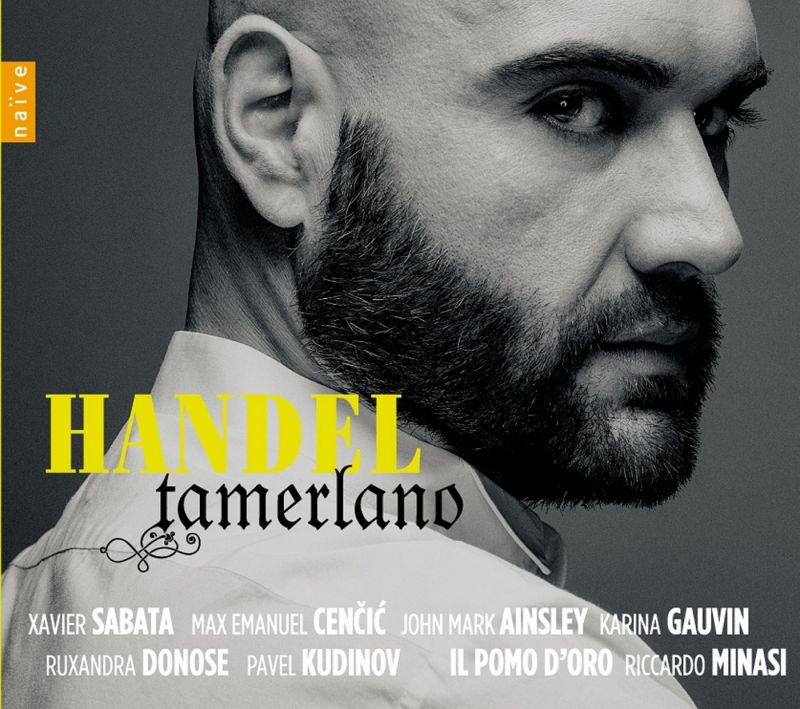HANDEL Tamerlano
View record and artist detailsRecord and Artist Details
Composer or Director: George Frideric Handel
Genre:
Opera
Label: Naïve
Magazine Review Date: 08/2014
Media Format: CD or Download
Media Runtime: 193
Mastering:
DDD
Catalogue Number: V5373

Tracks:
| Composition | Artist Credit |
|---|---|
| Tamerlano |
George Frideric Handel, Composer
George Frideric Handel, Composer Il Pomo d'Oro John Mark Ainsley, Bajazet, Tenor Karina Gauvin, Asteria, Soprano Max Emanuel Cencic, Andronico, Countertenor Pavel Kudinov, Leone, Bass Riccardo Minasi, Conductor Ruxandra Donose, Irene, Mezzo soprano Xavier Sabata, Tamerlano, Countertenor |
Author: Richard Lawrence
The chief characteristic of this performance is the unbridled energy of the orchestra. Time and again, in fast music, the violins speed towards the end of a phrase like a bull charging a gate; further impetus comes from swelling on tied notes. Tamerlano’s first aria is marked by heavy accents, while the strings surge and stab away in Bajazet’s exciting ‘Ciel e terra’. It is immensely invigorating, but there are calmer episodes too: soft clarinets for Irene’s siciliano and gentle recorders for ‘Vivo in te’, a duet in the vein of ‘Io t’abbraccio’ in the following year’s Rodelinda.
John Mark Ainsley makes a heroic Bajazet, deeply moving in the broken phrases of his death scene; Andronico is tenderly sung by Max Emanuel Cencic; and Ruxandra Donose brings lovely warm tone to Irene. Why does she speak over the music in her arietta? Karina Gauvin is splendidly forthright as Asteria: no shrinking violet, she makes the singers for Trevor Pinnock and George Petrou sound bland in comparison. I find Xavier Sabata slightly too hooty for comfort but he too is well inside his part.
Petrou’s account of the 1724 version, recitatives and all, is still to be prized. There are good things in Pinnock’s live recording (1731, roughly, minus four arias). But newcomers should start with this throat-grabbing performance from Riccardo Minasi and Il Pomo d’Oro.
Explore the world’s largest classical music catalogue on Apple Music Classical.
Included with an Apple Music subscription. Download now.

Gramophone Digital Club
- Digital Edition
- Digital Archive
- Reviews Database
- Events & Offers
From £9.20 / month
Subscribe
Gramophone Club
- Print Edition
- Digital Edition
- Digital Archive
- Reviews Database
- Events & Offers
From £11.45 / month
Subscribe
If you are a library, university or other organisation that would be interested in an institutional subscription to Gramophone please click here for further information.






